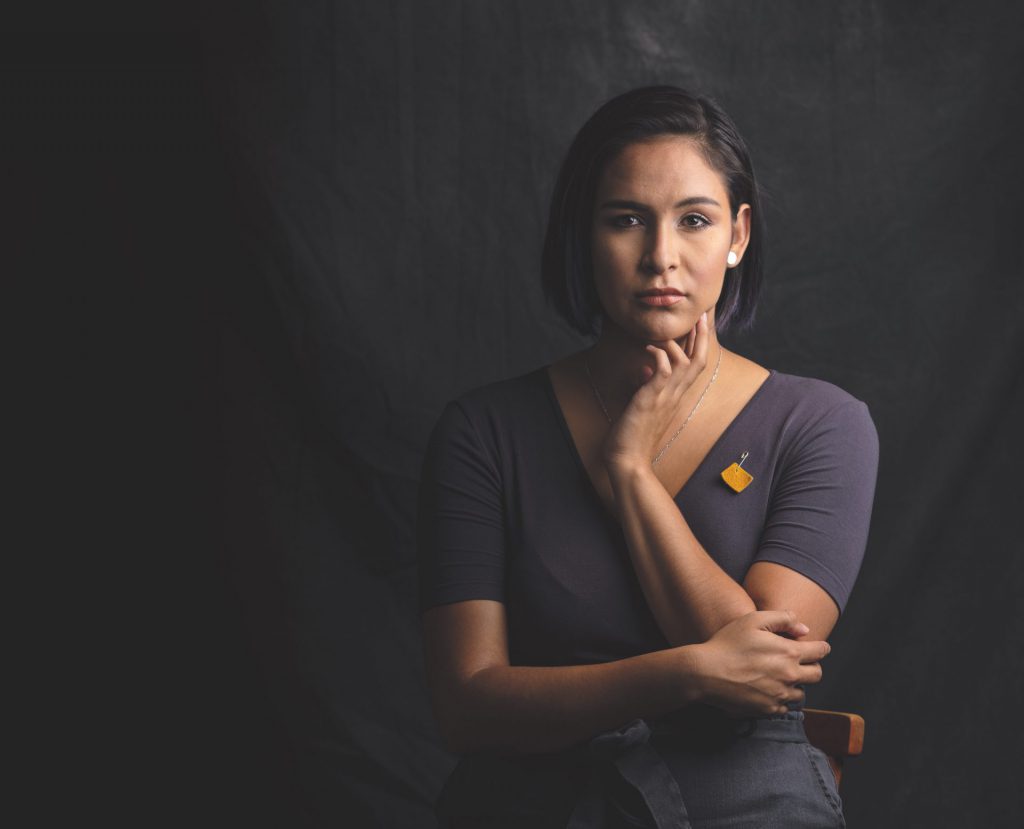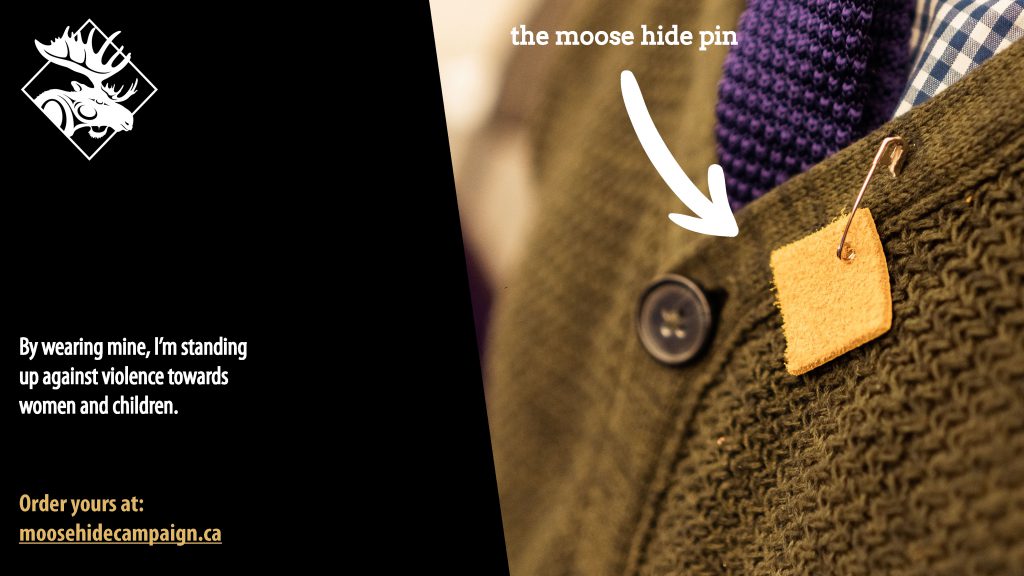Violence against women and children and violence against the land are intertwined, says Moose Hide Campaign co-founder Raven Lacerte. At MakeWay, everything we do centers around a common goal of helping nature and communities thrive together, because we believe that interconnection is crucial. That’s why we want to take a moment this month to talk about an initiative that’s encouraging all Canadians to take a stand and bring an end to violence against women and children.
The Moose Hide Campaign is a grassroots movement of Indigenous and non-Indigenous men and boys who are standing up against violence toward women and children.

Creation Story
In 2011, Paul Lacerte and his daughter Raven were hunting moose near Highway 16 in Northern British Columbia, a corridor also known as the Highway of Tears — a place where dozens of Indigenous women and girls have gone missing since 1970. In Canada, Indigenous women and girls are targeted for violence more than any other group. They are 12 times more likely to go missing or be killed.
As Paul and Raven harvested the moose that would feed their family, they had a moment of inspiration: they would tan the moose hide and cut it into squares to engage men in efforts to end violence against women and children. From this idea, the Moose Hide Campaign was born.
Becoming a Movement
By 2018, more than 1 million squares had been distributed to communities across Canada. The Moose Hide team have even created synthetic squares for those who wish to take part in the campaign but do not feel comfortable wearing animal hides.
What began as a grassroots campaign has become a nation-wide movement creating systems change to end domestic and gender-based violence. Over the past 10 years, the Campaign has engaged men and boys across various communities and sectors including K-12 and post-secondary students, politicians and bureaucrats, the RCMP, and the philanthropic sector, to name a few.

Moose Hide Campaign Day
In 2020, over 1,000 people gathered in Victoria to walk to end violence against women and children and take part in a community feast. The campaign has bridged divides between Indigenous communities, settler communities, and government institutions in an inspiring way.
“I felt that as a government worker that I was welcomed without judgement, which was a worry of mine with the current climate of the government and Indigenous relations. I appreciated being able to participate in the workshops which allowed me to reflect on how current practices may change to improve the lives of British Columbians.” – BC public servant who took part in the 2020 gathering
This year, the campaign will go virtual in light of the ongoing Covid-19 pandemic. Rather than a series of local in-person events, the online forum will allow for a national convening and series of workshops. A day-long fast will break at sunset, Pacific time. It is impossible to estimate the prevalence of domestic violence in Canada, with as many as 70% of cases going unreported. Still, studies suggest that the rate of domestic violence increased as much as 30% in some Canadian communities at the onset of the pandemic lockdown in Spring 2020. With that in mind, this year’s campaign is more important than ever.
We invite you to join the MakeWay team in participating in the 10th Annual Moose Hide Campaign Day on February 11th. To participate, register here.
If you or someone you know is in need of assistance, take a look at this national resource library.